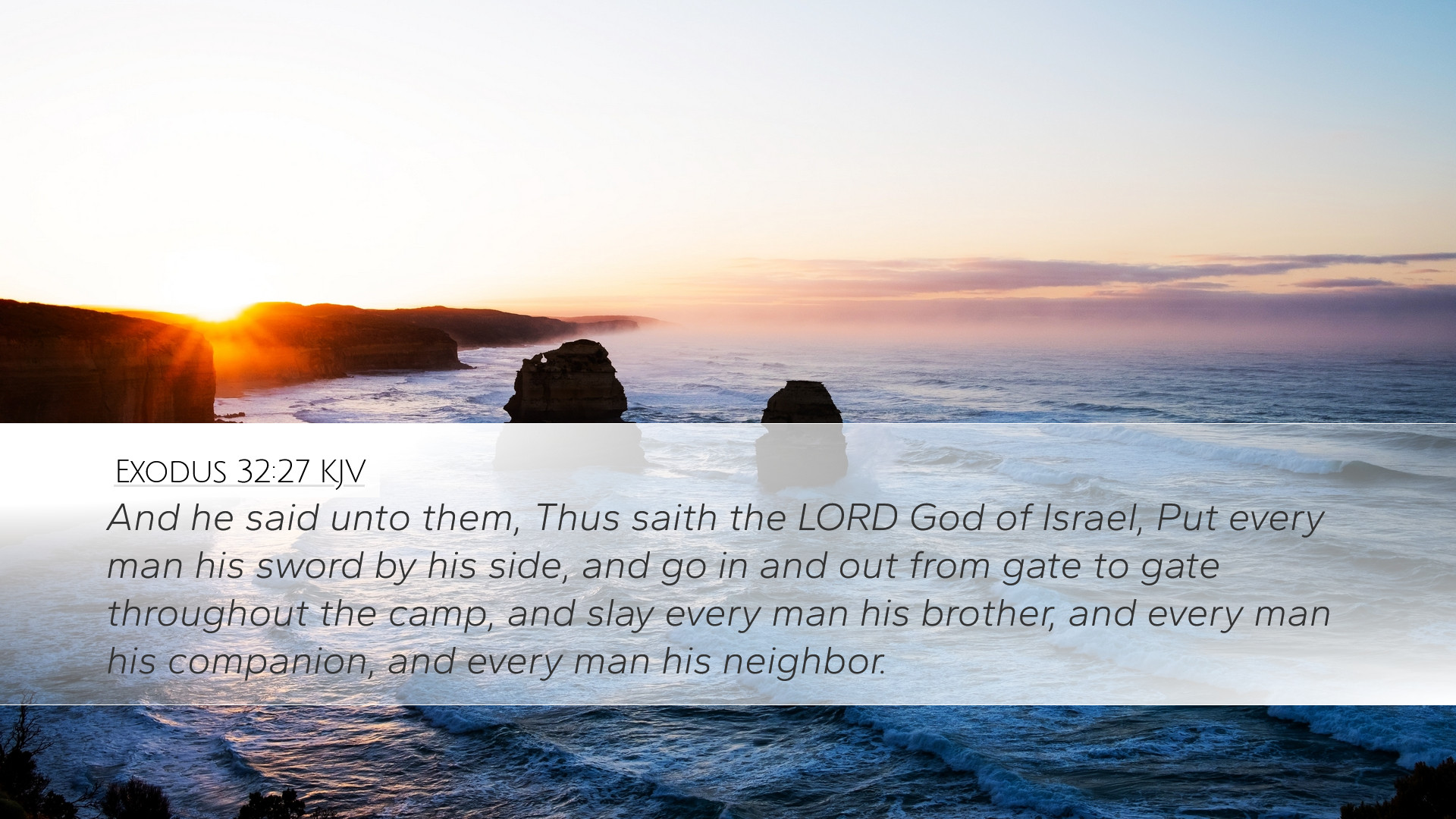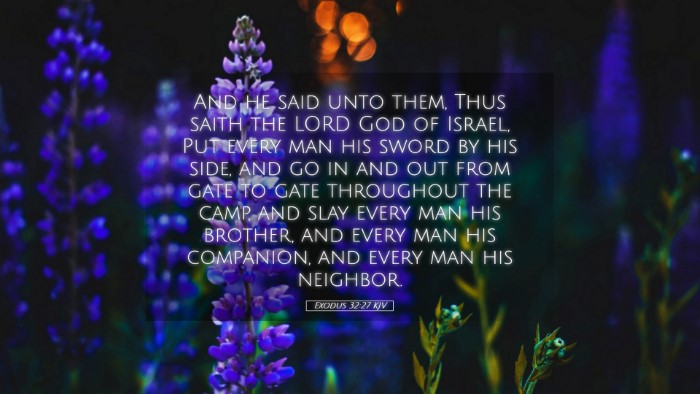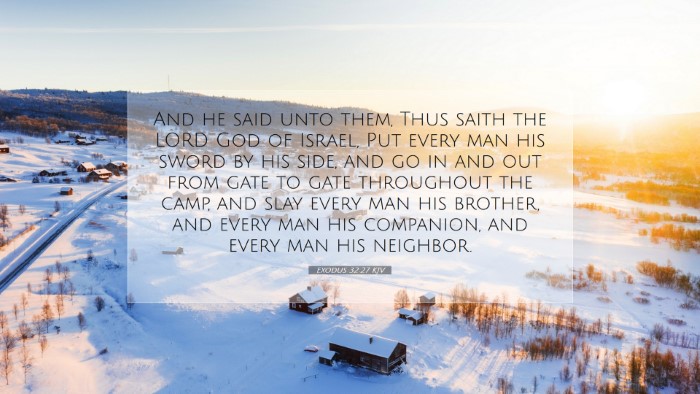Commentary on Exodus 32:27
Exodus 32:27 states: "And he said unto them, Thus saith the Lord God of Israel, Put every man his sword by his side, and go in and out from gate to gate throughout the camp, and slay every man his brother, and every man his companion, and every man his neighbour." This scripture follows the Israelites' idolatry with the golden calf and serves as a pivotal moment of judgment and divine order.
Contextual Background
The backdrop of this verse is the Israelites' grave sin of making and worshipping a golden calf while Moses was receiving the Law on Mount Sinai. This incident underscores the contrast between divine holiness and human rebellion.
Commentary Insights
Matthew Henry's Commentary
Henry emphasizes the severity of the Israelites' sin, stating that the golden calf was a betrayal of their covenant with God. He notes that Aaron played a significant role in this transgression, having facilitated the people's demand for a god they could see. Henry argues that the command to slay those involved in idolatry reflects God's jealousy for His people and His desire to preserve the holiness of His congregation.
Albert Barnes' Notes
Barnes elaborates on the implications of God’s command through Moses. He interprets "Put every man his sword by his side" as a call to decisive action against egregious sin. He posits that this action was not merely a consequence for the individual sinner but a necessary purge for the wider community to protect it from further corruption and to reaffirm the seriousness of their covenant relationship with God. Barnes highlights the weight of the moral and social order threatened by the golden calf—a crime against the very nature of God.
Adam Clarke's Commentary
Clarke delves into the theological implications of this harsh command. He notes that it reflects the righteousness and justice of God, who cannot tolerate sin within His people. Clarke mentions the necessity for discipline within the community, arguing that such measures were part of maintaining the sanctity of Israel as God’s chosen nation. He also explores the role of the Levites in executing this command, emphasizing their commitment and zeal for God, which ultimately distinguished them as a tribe dedicated to divine service.
Theological Implications
This verse raises critical theological questions about judgment, mercy, and divine justice. It illustrates the seriousness of sin, especially idolatry, and highlights the measures God undertakes to restore holiness among His people. The harshness of the command serves to underline God's fervent desire for exclusive worship and fidelity, making it a stark warning against complacency in faith practices.
Application for Today
In a modern context, this scripture challenges pastors, students, and scholars to consider what idolatry looks like today. It calls for introspection about worship practices and any modern-day idols that may distract from genuine devotion to God. The call to action as expressed in Exodus 32:27 urges contemporary believers to take strong stances against any forms of spiritual compromise.
Pastoral Application
For pastors, this verse is a reminder of the need for shepherding communities that are faithful to God's commandments. It encourages confronting sin in a spirit of love, with the goal of restoration while firmly upholding the holiness of God’s standards.
Scholar Reflection
Bible scholars may reflect on this passage as a study of divine justice. It opens pathways to discussions on God’s covenant with humanity and the complexities of His interaction with sin and judgment, promoting deeper theological inquiry into God’s character.
Conclusion
Exodus 32:27 serves as a profound lesson in the consequences of rejection of God amidst His covenant community. The insights from Matthew Henry, Albert Barnes, and Adam Clarke converge to offer a comprehensive exploration of judgment, divine justice, and the need for purity among God’s people. As believers reflect on this scripture, they are called to renew their commitment to genuine worship, shunning any modern equivalents of the golden calf.


